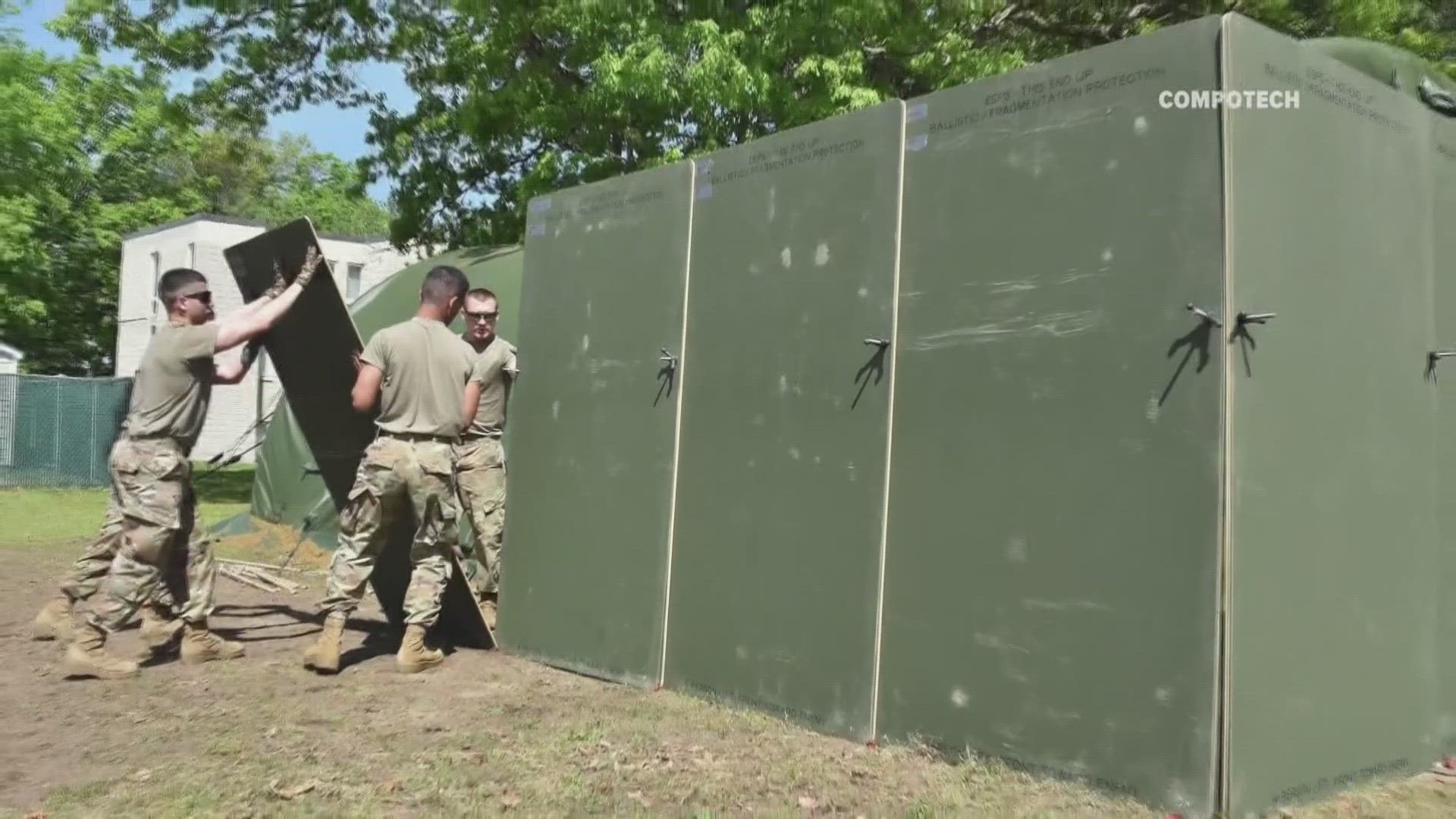BREWER, Maine — On the production floor, forklifts buzz back and forth, carrying stacks of raw materials and finished products, while big industrial robots swing and spin composite panels through different steps of manufacture.
Among and around all those machines, skilled workers transform composite cloth, resins, and special ceramics into a system to protect U.S. Army soldiers in dangerous places.
Welcome to Compotech, a young company already getting attention around the national composites industry and the business world for rapid growth and ingenuity.
“We make a ballistic protection system, its called the Expeditionary Shelter Protection System," Paul Melrose, president and one of three co-founders of Compotech, said.
“It's an armored shelter that goes around military structures or other … critical assets they want to protect.”
The panels, he explained, take the place of traditional sandbags that have been used for generations to protect Army tents and troop positions, fuel storage, and other vulnerable parts of encampments in combat zones. The panels, he said, are bulletproof and also resistant to mortar shells and some other weapons.
Melrose is an engineering graduate of the University of Maine, as are his business partners Tyler Jolicoeur and Jacques Nader. They had became friends while studying at UMaine, and all three went on to earn Master’s degrees in engineering or business.
Melrose had returned to the campus for a job at the Advanced Structures and Composites Center, the school’s highly-regarded research and development laboratory for a wide range of products—including composite ballistic panels.
“As part of my job there, we were trying to find partners to commercialize the technology,” Melrose explained. "And we were struggling to find someone in Maine to commercialize it. And eventually (we) said, 'Who is better suited to do this than us?'”
Melrose, Jolicoeur, and Nader teamed up and began their own research and development efforts while keeping their day jobs. Melrose said they refined the design, and worked with the Army on details. In 2014, the three partners saw the Army was ready to provide funding, took the plunge and quit their jobs to devote full time to the infant business. Four nervous months later, they finally signed a contract to fund final research and design and prototype testing. Two years later, Melrose said, the Army gave them a much bigger contract to produce the panels.
Compotech was off and running.
“So we were able to go from two people working full time and then to about ten, and stayed at ten for a while and now we’re at fifty employees," Melrose said.
The company has become the kind of business success story Maine has been trying for years to encourage. Compotech received significant start-up funding from the Maine Technology Institute, which Melrose said helped equip the plant. They have also received private funding from a Maine bank.
The University of Maine has also played a role growing the business. Besides inspiring creation of the panels and training the three business partners, Melrose said Compotech now employs a total of 17 UMaine engineers—a third of the workforce.
Just six years into production of the panel system, the business is developing a second product for the Army, a lightweight, portable structure made of composite panels to provide shelter in harsh environments. The company says the 14-by-29-foot buildings can be set up by four people in as little as 15 minutes, and can keep soldiers warm and dry in places like the Arctic, where traditional tents aren’t practical. The structures are being tested in Alaska and other spots, Melrose said, and Compotech is hoping to be producing those products within two years.
In the process, their still-young business was honored this year by Inc. Magazine for being in the top 1,000 fastest growing companies in the U.S., and one of the fastest growing manufacturers.
“It's extremely exciting,” Melrose reflected. “A lot of times we sit down and say, 'This is such a great experience. How many get to go on this ride?' And the answer is, not many at all.”

